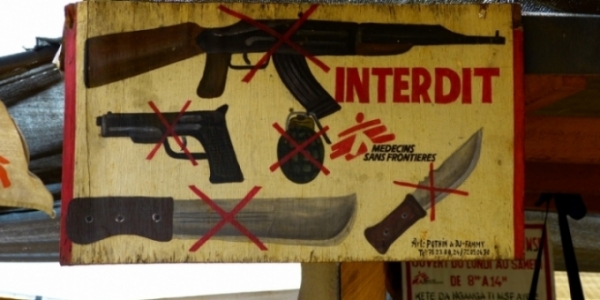Central African Republic (CAR) is a country that has been engulfed in conflict since late 2012. The central government appears absent in a significant part of the territory and is unable to provide basic protection to the population. As a result, violence has led to thousands of civilian deaths, social division, and massive displacement (to read more on this topic, please read https://www.losservatorio.org/en/reports/item/1401-displacement-of-civilians-in-times-of-war).
The de facto authority in CAR is represented by armed groups (in particular Séléka and Anti-Balaka fighters) which, despite the presence of UN military troops, subdue the population and commit any kind of abuses against civilians with total impunity. Fighting, burning, looting, killing, destruction of property, and other episodes of violence in Batangafo occur on a daily basis.
International military presence has been recurrent in the country since its independence in 1960. The United Nations Multidimensional Integrated Stabilization Mission in the Central African Republic (MINUSCA), for example, is a stabilization force created in support of the Government of CAR (GoCAR). The Mission has been active since April 2014 under Chapter VII of the UN Charter, with a total of 14,632 staff deployed in November 2018, including contingent troops, police and civilians. The problem with MINUSCA is however that, while the protection of civilians is listed among the priorities mentioned in UNSC resolution 2448, the mission happens to have three other priorities and five additional tasks. This generates a lack of clarity within the mission, particularly with regards to how to prioritize.
In light of the above, and with the aim to illustrate the situation of suffering, instability, and insecurity in CAR, Médecins Sans Frontières started documenting the recurrence of violence in Batangafo, Kabo, and Bangui between November 2018 and early January 2019, by conducting field research and semi-structured interviews on Skype and over the phone.
The outcome of this recording activity yielded a comprehensive Report, which was then elaborated on by the MSF’s Centre for Applied Research on Humanitarian Practice (ARHP) and published in February 2019. The document essentially shows the lack of effective response with regard to the protection of civilians and urges all parties involved in the conflict and other relevant actors to respect international humanitarian law (IHL). It asserts that while the UNSC resolutions authorising MINUSCA have insisted that the primary responsibility in the protection of civilians lies with the government of CAR, MINUSCA arrived in Batangafo with the stated objective of protecting civilians. And the mission has again failed to do so.
For more information, please read:
https://www.msf.org/unprotected-report-violence-and-lack-protection-civilians-car-central-african-republic
Author: Federica Pira; Editor: Ellen Barth







